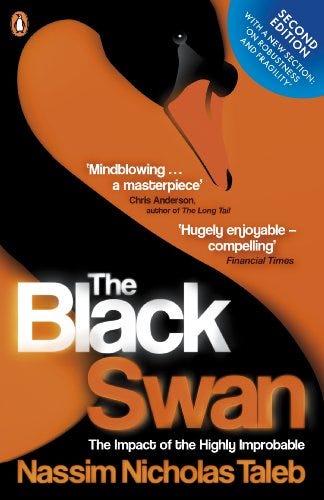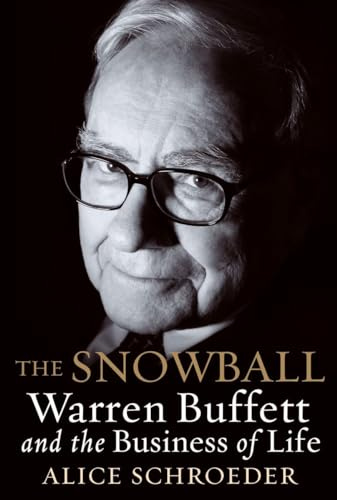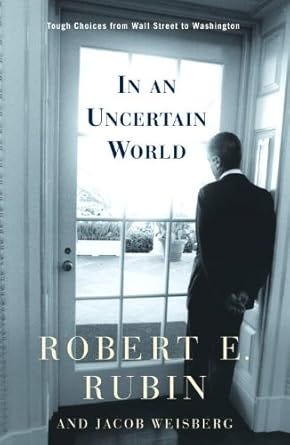The Chinese Apple: The Sweetness You Have to Earn
Three books can change your Thursday. One book can change your world.
Hello,
Growing up, as a rare treat, my mom would come home from the grocery store with a “Chinese apple” - otherwise known as a pomegranate. It wasn’t an every-week purchase - pomegranates were expensive then, a kind of luxury fruit. But once in a while, she’d bring one home because she knew how much I loved the taste of those tiny, jeweled seeds.
When she pulled the fruit from the grocery bag, I’d light up. My dad would take out a sharp knife, slice it open, and reveal a world of crimson brilliance inside - hundreds of glistening seeds packed so tightly together they looked like treasure.
From a distance, they seemed easy to reach. But anyone who’s ever pried open a pomegranate knows the truth: you have to work for the reward. The seeds don’t come freely; they resist. You have to pick them out carefully, one by one, staining your fingers red in the process.
As a kid, I dreamed of a big bowl filled with those seeds - no peeling, no picking, no work. Just the pleasure. But that was never how it went. Pomegranates made you earn their sweetness. They taught patience, effort, and appreciation.
Fast forward forty years.
I’m walking through the grocery store with my daughter Ruby, and there it is - an entire container filled with pomegranate seeds, ready to eat. No mess, no work, no waiting. I smile, amazed by how far we’ve come. I buy them often now, grab a spoon, and savor the same crunch, the same sweetness. It still reminds me of home, of my mom calling them “Chinese apples,” of my dad’s careful slicing, of simple afternoons when everything felt abundant because it was rare.
But sometimes, when I eat them now, I miss the work.
I miss the quiet ritual of slicing open the fruit, the red-stained fingers, the reward that came slowly. Because while convenience has given us access to almost everything, it’s also taken away something subtle but sacred - the satisfaction of effort.
There’s a kind of sweetness you can’t prepackage.
Some things are meant to be earned.
Maybe that’s the lesson hidden inside the pomegranate - the things that truly nourish us rarely come easy. They take patience, persistence, and a little bit of mess.
But when you finally hold that small handful of seeds, when you taste what you’ve worked for - it’s worth every bit of it.
Welcome to this week’s Three Book Thursday.
1. Decision making
The Black Swan: The Impact of the Highly Improbable
Summary
Every so often, a book doesn’t just change how you think - it changes what you think about. The Black Swan is one of those books. Taleb explores the power of the unpredictable - those rare, life-altering events that seem impossible until they happen, and obvious only in hindsight. The real lesson? Our world is far less predictable - and far more fragile - than we like to believe.
Black Swans are those events that reshape everything - 9/11, the financial crisis, the pandemic. We never see them coming, yet afterward, we tell ourselves we should have. The problem isn’t surprise - it’s arrogance. We crave certainty and order, but life runs on randomness. It humbles us, reminds us that what truly shapes our lives are often the moments we never planned for.
For anyone navigating uncertainty, Taleb’s message is both a warning and a challenge: stop trying to predict the future and build a life that can thrive in its unpredictability. That’s what he calls being “antifragile”- not just resilient, but made stronger by stress and change.
Taleb invites us to stop fearing the unknown and start designing systems–businesses, habits, lives–that benefit from volatility. The same randomness that breaks some people makes others extraordinary.
The Black Swan reminds us that life’s biggest turning points won’t come with a warning label. But if we stay humble, curious, and adaptable, those moments won’t shatter us–they’ll forge us.
Quote: “The unexpected almost always finds us unprepared, while the predictable rarely changes us.”
Principle: The world we imagine is always simpler than the world we live in.
Insight: History is opaque. You see what comes out, not the script that produces events.
Author: Nassim Taleb
Themes: Decision making, Human psychology, Investing
My personal notes from the book
2. Biography
The Snowball: Warren Buffett and the Business of Life
Summary
Warren Buffett once said, “Life is like a snowball. The important thing is finding wet snow and a really long hill.” That single metaphor captures not just his philosophy of investing–but of living. The Snowball isn’t a story about money. It’s a story about time, discipline, and the quiet power of compounding effort, curiosity, and integrity over a lifetime.
Alice Schroeder’s biography takes us inside Buffett’s world - not the Oracle of Omaha we know from headlines, but the man behind the patience. His success wasn’t built on quick wins or strokes of luck; it came from playing the long game, relentlessly. Buffett saw what most of us overlook: that the biggest returns in life don’t come from taking massive leaps, but from steady, consistent motion in the right direction - one good decision after another.
What makes Buffett remarkable isn’t his wealth - it’s his restraint. His ability to say no. To sit still when the world around him is sprinting. To understand that compounding only works when you don’t interrupt it. The same principle applies to our health, our craft, our relationships: what we nurture patiently grows quietly until one day it becomes unstoppable.
The Snowball is ultimately a book about values. About the kind of success that outlives its balance sheet. It’s a lesson in patience, humility, and purpose - reminding us that the true measure of wealth isn’t just financial gain, but the richness of a life built with intention.
Quote: “You cannot possibly succeed until you start. The way to begin making money is to begin. Hundreds of thousands of people in this country who would like to make a lot of money are not making it because they are waiting for this, that, or the other to happen. Begin it!”
Principle: Praise by name, criticize by category.
Insight: In teaching your kids, I think the lesson they’re learning at a very early age is what their parents put an emphasis on. If all the emphasis is on what the world’s going to think about you, forgetting about how you really behave, you’ll wind up with an Outer Scorecard.
Author: Alice Schroeder
Themes: Biography, Personal finance, Investing
My personal notes from the book
3. Memoir
In an Uncertain World: Tough Choices from Wall Street to Washington
Summary
From his years as co-chairman at Goldman Sachs to U.S. Treasury Secretary under President Clinton, Rubin lived his life surrounded by complexity–financial crises, political tension, global volatility–and yet, through it all, he maintained a single guiding philosophy: embrace uncertainty, don’t fear it.
Rubin argues that the world is not predictable - and never has been. Success, in any field, doesn’t come from eliminating risk but from learning how to make good decisions without certainty. He calls it “the probability mindset” - accepting that you’ll never have perfect information, and yet still moving forward with clarity, humility, and courage.
What makes this book timeless is Rubin’s refusal to sugarcoat complexity. He shows that the best leaders are not prophets–they’re problem-solvers. They weigh probabilities, think long-term, and never confuse confidence with certainty. They understand that progress depends not on knowing the future, but on acting wisely within its fog.
There’s a line that runs through this book and straight into life itself: we live in a world we can’t control, but we can control how we think in it. That’s the edge.
Rubin’s story is a reminder that our power lies not in predicting what’s next, but in preparing ourselves to adapt, respond, and lead with integrity when it arrives.
Quote: “My general experience in life has been that most people can change only within a narrow range, if at all. Many people can acknowledge criticism and advice, but relatively few internalize it and alter their behavior in a significant way.”
Principle: Markets can remain irrational longer than you can remain solvent .
Insight: Inner needs drive external accomplishments but can never be satisfied by those external accomplishments.
Author: Robert Rubin
Themes: Memoir, History, Politics, Investing
My personal notes from the book
Maybe the lesson in the pomegranate, Warren Buffett’s snowball, Taleb’s black swan, and Rubin’s uncertain world is the same: the best things in life take time, risk, and a little bit of mess.
We live in a world built for convenience—prepackaged seeds, instant answers, overnight success—but the things that last still require patience. Earning them gives them meaning. The real growth happens not when we know what’s coming, but when we keep moving forward despite not knowing.
So wherever you are—building a business, healing patients, raising kids, or just trying to figure out what comes next—remember this: the sweetness is in the work. The uncertainty, the waiting, the doing. That’s where character compounds, where resilience takes shape, and where life tastes the most alive.
Always ❤️📚💡
P.S. In the 18th and 19th centuries, when pomegranates first began appearing in North America, they were often called Chinese apples because they were exotic, imported from the East, and roughly apple-sized. The term stuck in certain regions - especially the South and parts of the Northeast - and older generations sometimes still use it today.
Three Book Thursday is free, but there are many costs to create these posts each week. So, can you do me a favor?
If you find value here, please support the newsletter.
Please share Three Book Thursday with a friend, college, family member, or post it to your socials. I’m working hard to grow this audience, but let’s be honest—you’re probably better at it than I am.
Or, do both!






